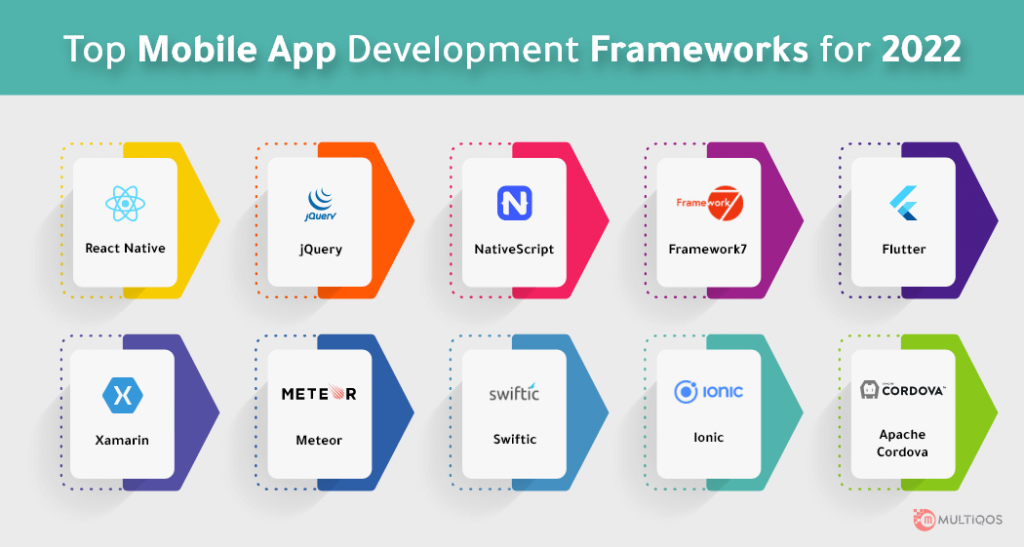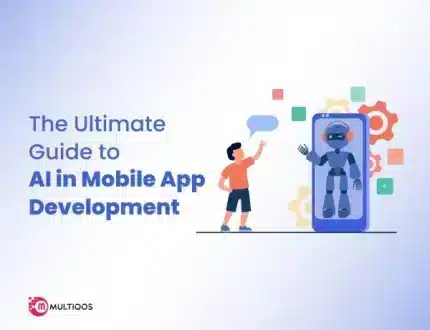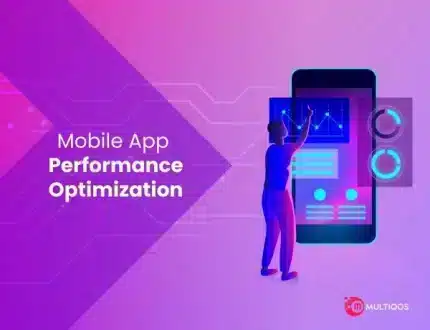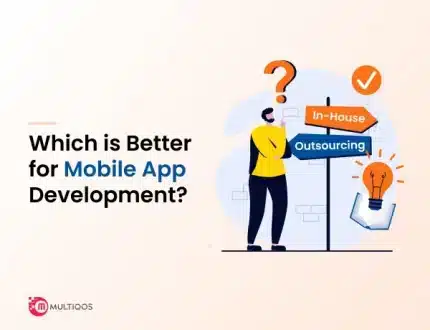Top Mobile App Development Framework Trends to Watch Out for in 2025
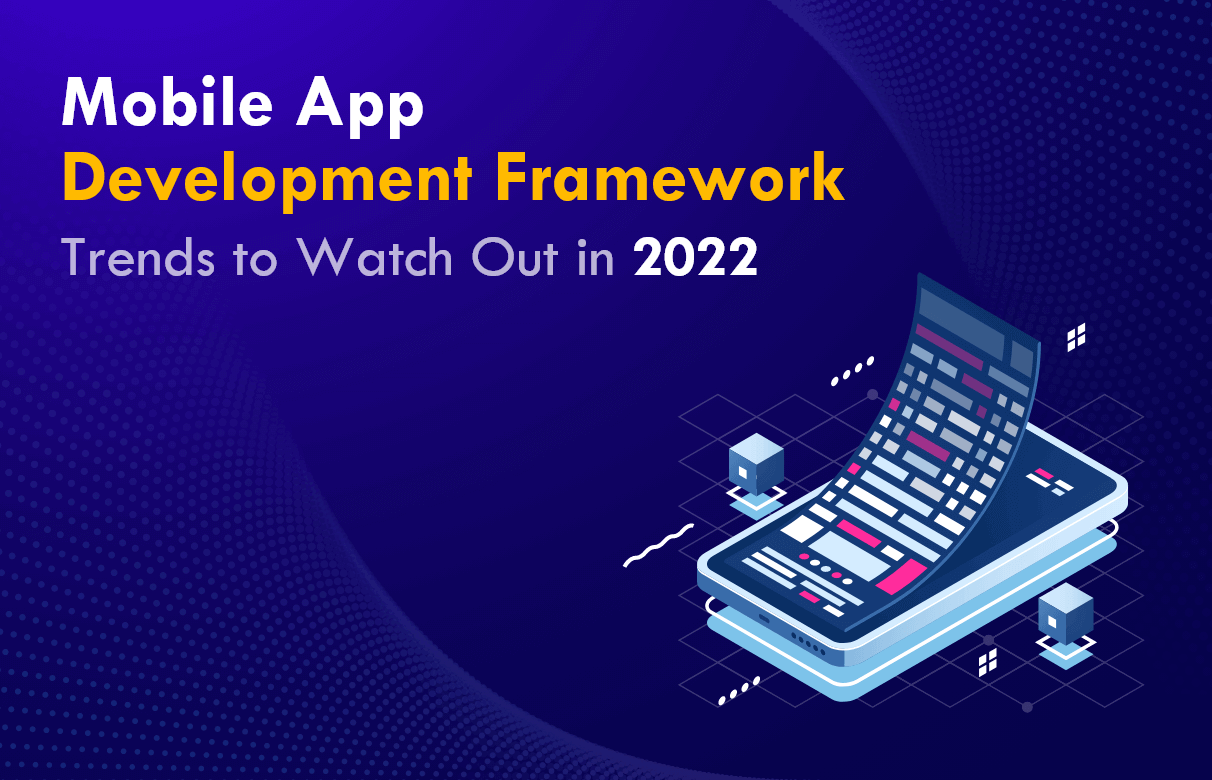
Introduction
Observing the increasing use of smartphone apps, it is quite evident that businesses through 2024 will not only engage the intended audience but will also benefit from app monetization. With this in mind, it is impossible to deny that app development is a difficult task. There may be several details that cause you problems unless you have enough knowledge and expertise. The most difficult step is to envision a mobile app architecture that will function properly in 2025 and beyond. Furthermore, it must be sturdy, user-friendly, and equipped with all of the most recent mobile app capabilities. So considering it is not a bad idea!
If you’re thinking about mobile app development and are concerned about the facts listed above, don’t be. For your convenience, we have created a comprehensive mobile app development framework reference.
What Is a Mobile Application Development Framework?
Organizations have proven that mobile applications are the most effective approach to expanding their consumer base. There is never a shortage of innovative app ideas which ensures everything works in the favor of application development companies.
Well, to design an app, you do not need to be fluent in any sophisticated programming languages. There are several app development frameworks available for iOS and Android. All you need is a good understanding of web-based programming languages. For example, HTML, CSS, or JavaScript.
A mobile app model is a software development platform that contains, among other things, tools and software, compilers, debugging tools, and programming interfaces. As a result, a developer writes the source code for the program as well as the mobile application development framework 2023 and then employs various aspects to construct the application for the various mobile devices.
Importance of Mobile Application Development Framework
There were over 24,000 Android phone variants a few years ago, and you can also include numerous iPhone models. Nevertheless, the majority of them differ from one another in terms of app download characteristics. As a result, it was difficult for developers to create separate apps for each phone and further managing them afterward proved to be an issue.
Now, owing to technology and open-source iOS and Android app development frameworks, the manner applications are created has evolved. Developers can create cross-platform apps in less time. As a result, mobile app industry giants such as Risingmax are utilizing these mobile frameworks and providing clients worldwide. To elaborate, let us explain the primary benefits of the mobile app development framework for your organization.
- Code Reusability: The cross-platform feature enables experts to utilize a single code that can execute efficiently across several systems. It aids in the elimination of repetitive operations and increases the pace with which mobile applications are created. The reusability of code also assists developers in addressing day-to-day difficulties rather than focusing on learning new operating system codes. Reliability enables specialists to immediately repair faults and offer enhancements to all other platforms.
- Cost Reduction: Businesses must recruit additional individuals or specialists with several skill sets during the native application development process. It was a time-consuming and expensive process. Furthermore, before beginning a project, businesses must give personnel training.
- Cross-platform Mobile App Development, but on the other hand, require fewer team members to manage tasks. Furthermore, experts require less expertise and cross-platform for iOS and Android frameworks. Learning JavaScript-based tools such as React Native is therefore sufficient for developing a commercial application.
- Broader Market Reach: Creating a cross-platform app expands your market reach. There are currently over 3.5 million smartphone users worldwide. Nearly 34.99 percent of these devices run iOS, while 74.43 percent run Android. Taking into account all of the data, you will have several options to boost your brand’s exposure, engagement, and marketing capabilities. In a way, your single set of relevant business apps can help you expand your market reach.
- Faster Application Development and Time-To-Market: Every company must think one point ahead of its customers. Or else, the buyer will alter their decision in one second. A mobile app development framework is the ideal approach for winning this cutting-edge competition in 2024. Businesses now can modify anything at any time, and the consequences are visible across all platforms.
Furthermore, upgrading devices and resolving issues may be quickly coordinated, and distributing notifications to all devices takes only a few seconds.
Also Read : Key Factors Will Affect the Success of Your Mobile App Development in 2024
Types of Frameworks for Mobile App Development in 2025
There are three kinds of mobile app development environments. These are some examples:
- Native Mobile App Development Frameworks: This framework is solely used to create native apps. For example, you could wish to create apps for certain operating systems such as Windows, iOS, or Android. You must work on a native mobile app development platform.
- Mobile App Development Frameworks: If you want to create a cross-platform app or responsive apps, you must use technologies like React Native or Flutter.
- Hybrid Mobile App Development Frameworks: Hybrid Mobile App Development Frameworks in 2024 are suitable if you want to create apps with HTML5, JavaScript, and CSS. These apps are cross-platform and may provide a mobile application experience in the context of UI/UX, push notifications, and so on.
Top 10 Mobile App Development Frameworks for 2025
Some contemporary mobile app development frameworks are listed below. These can be quite beneficial both for Android and iOS App Development.
React Native Framework
React Native is becoming one of the most sought-after mobile development frameworks, with mobile app industry specialists using it. React, a cross-platform software loaded with JavaScript library codes, aids in the development of extremely responsive apps. It may be used for iOS and Android App Development, as well as to create new apps from scratch.
The React Native framework aids in closing the performance gap between native app performance and developer efforts. As a result, numerous corporations, including Netflix, Apple, and PayPal, adopt the React Native technology. Furthermore, industry giants like as RisingMax employ React Native apps to develop apps for their consumers.
Why React Native in 2024?
- React Native works well on all apps, especially those with a heavy load.
- The reusable components boost job performance.
- Experts must put in less effort and wait for lengthy periods to assess performance.
- SEO-friendly features
- Tasks may be completed fast thanks to simple functionality.
Who can use React Native?
It may be used by experts who are familiar with JavaScript. Best of all, no prior knowledge of Android, Java, or iOS is required to begin working on it.
JQuery Framework
JQuery is one of the best mobile frameworks in 2024. It can make developing extremely sophisticated and complicated apps simple. As a result, developers all around the globe utilize this cross-platform to create HTML5 mobile apps that are suitable for the newest mobile, desktop, and tablet displays from iOS, Android, Blackberry, Windows, and others.
JQuery Framework-created applications are simple to use and provide assistance to consumers from start to finish. As a result, this platform is used by significant firms such as Facebook, WordPress, Google, and IBM.
Why JQuery Framework in 2024?
- All major mobile systems, including iOS, Android, WebOS, Symbian, Blackberry, Windows Phone 7, and others, are supported.
- It is simple to optimize an app for SEO.
- Customers can interact with the company thanks to eye-catching effects and animations.
- It is simple to design a website for all browser types and versions.
- Minimalist with few requirements
Who can use the JQuery Framework?
The JQuery Framework is ideal for e-commerce apps that require a homepage. As a result, if you are in an internet product company, you may utilize it for prototyping and dynamic effects.
NativeScript Frameworks
The NativeScript Framework is a free and open-source tool for building Android and iOS apps. JavaScript coding is incorporated in applications created using this framework. Native Script Framework includes a standard set of capabilities required for developing mobile apps.
NativeScript eliminates the need for experts to build separate programs for mobile and web. The very same code may also be used for both systems.
Why Native Script Framework 2025?
- It is compatible with futuristic mobile tactics.
- It greatly simplifies work.
- It comes with great tooling for increasing developer efficiency and consistency.
- It saves time and money and is simple to implement for newcomers.
Who can use the NativeScript Framework?
NativeScript Framework is an excellent alternative for developers who wish to create native apps with a single code base that is cross-platform compatible.
Framework7 Framework
Framework7 is the best mobile development framework 2024 if you want an application that has a native look and feels. You may create apps for iOS and Android devices. This software also includes supplementary tools for developing native apps, such as Electron and NW.js.
The frameworks include HTML, CSS, and some basic JavaScript, so you can get started even if you don’t know much about them. Aside from that, UI features and unique widgets are among the eye-catching components.
Why Framework7 Framework 2025?
- It’s highly responsive and has a speedier framework.
- It is compatible with React, Angular, and other template engines.
- A newbie can also undertake Android and iOS mobile app development without having to study them.
- Built-in auxiliary libraries can also be used.
Who can use Framework7 Framework?
This mobile app development framework may be used to construct apps by both novice and experienced mobile app developers. The most significant advantage is that you may use its free version without paying additional charges for a license.
Flutter Framework
Flutter is often recognized as the most effective framework for creating mobile apps by mobile app developers. It is Google’s freely available UI framework, which is used to create Android, iOS, or both devices. Flutter offers a unified codebase and scripting language, similar to JavaScript, that specializes in high front-end development.
Why Flutter Framework?
- The use of the same codebase for Android and iOS speeds up development.
- It aids in the conservation of both time and resources.
- You may view application performance in real time.
- Functions that are simple to use and handle.
Who can use Flutter Framework?
The best hybrid mobile app framework 2024, Flutter Development, is an excellent alternative for firms searching for mobile app development solutions that can swiftly demonstrate items.
Xamarin Framework
Another highly-regarded open-source mobile app development framework is Xamarin. This platform includes a wide range of libraries. As a result, developers may use the existing programs and distribute them across several platforms.
The Xamarin platform for mobile app development is used in conjunction with Microsoft’s IDE and Visual Studio for the.NET framework. So, if you’re designing mobile apps for macOS, Windows, tvOS, watchOS, or iOS, this is a great place to start.
Why Xamarin Framework in 2025?
- You can design extremely responsive, marketable apps.
- It offers significant maintenance assistance, as well as frequency and community support.
- 95 percent of the coding language is easily reusable.
- You may test the program on a variety of devices without purchasing them.
Who can use the Xamarin Framework?
This best mobile app development framework 2025 should be used for projects that prioritize the client user interface. It is more dependable and produces more effective effects in less time.
Also Read : Why a Business Needs a Mobile App Maintenance Service?
Meteor Framework
Meteor, often known as MeteorJS, is a popular and free JavaScript mobile app development framework. It is built on the invertible model and written in Node.js, and it aids in the development of cross-platform mobile apps for both Android and iOS platforms.
Meteor framework gives access to a large range of libraries that can simplify the prototyping of complex applications. As there is less scripting in this framework, there are fewer opportunities for developers to make mistakes. As a result, specialists utilize it in conjunction with front-end JS frameworks like React, Vue, Blaze, Svelte, and Angular.
Why Meteor Framework?
- It enables the use of a single language.
- By default, the framework supports Real-Time applications.
- You may get a lot of help from a vast community.
- It is faster to build and easier to learn for novices.
Who can use Meteor Framework?
Meteor is an excellent framework for developing responsive apps. Its simple functionalities might assist novice developers in quickly creating apps and make it the best mobile app framework in 2024.
Swiftic Framework
Swift is among the most prominent mobile app development technologies that are iOS-compatible. It has a simple interface and is a good choice because all of its plans have a single monthly money-back guarantee. Aside from that, it provides a 6-month performance guarantee program. If it fails to achieve the expected outcomes, you will not be charged for a 6-month membership.
Among the features are third-party connection, attractive push alerts, actionable analytics, in-app discounts, building your mobile company, and simple communication.
Why Swift Framework?
- Programs that provide a 30-day money-back guarantee
- The interaction and navigation are straightforward.
- Collaboration with other parties is strong.
Who can use Swift Framework?
Swiftic is the best backend development framework for a mobile app that aims to make it simple for anybody to create distinctive applications for their business. It makes app creation easier by letting programmers use existing information from the internet rather than beginning from scratch.
Ionic Framework
Ionic can be used to build dynamic hybrid and Progressive Web Apps, as well as cross-platform apps. This open platform framework offers comprehensive application development services. Ionic is a framework for developing web, Android, and iOS apps. Furthermore, while working with Ionic, you can construct apps and migrate them to deployment destinations regularly. Ionic Studio is the lightning version of Ionic, and it’s a powerful tool. You may use it to set up a basic visual development platform on your computer.
Ionic is frequently seen as a superior alternative to other mobile app development frameworks due to its out-of-the-box functionality.
Why Ionic Framework?
- App development for a variety of platforms.
- The user interface is unified.
- Improved performance.
- The user’s adaptability
Who can use Ionic Framework?
This best hybrid app framework 2025 assists developers in developing robust, feature-rich native apps. It also allows programmers to use a variety of UI components in the application framework, including filtering, inputs, views, simple navigation, and action sheets.
Apache Cordova
Apache Cordova, previously PhoneGap, is a common mobile app development platform. It’s a cross-platform app development in 2024 that creates mobile apps with CSS3, HTML5, and JavaScript. Cordova extensions let developers include device hardware devices like GPS, camera, and accelerometer to give a native-like customer experience. Apache Cordova’s main advantages include a speedier development process and third-party app management solutions, as well as a single codebase.
Why Apache Cordova?
- A solitary source of code
- The development process is being streamlined.
- Third-party app management approaches
Who can use Apache Cordova?
Cordova plugins allow developers to create native-like interfaces by utilizing smartphone hardware features like as GPS, cameras, and accelerometers. A speedier production approach with a single code base and a third-party application management tool are two of Apache Cordova’s most notable features.
Conclusion
Every day, mobile app development advances from a platform-specific app to a cross-platform application. As a result of this advancement, mobile development patterns have experienced a significant fundamental change. With such quick technical advancement, it will be fascinating to see how flexible our applications become with the help of a mobile app development company.
Let’s Create Big Stories Together
Mobile is in our nerves. We don’t just build apps, we create brand. Choosing us will be your best decision.
FAQ on Mobile App Development Frameworks
React Native is one of the most used mobile app frameworks in the IT sector. The Facebook application is a user-friendly framework that allows users to build iOS and Android mobile applications.
Framework7 is easy to use and employs an open-source framework. It uses popular web standards like HTML5, JavaScript, and CSS3 to let developers make native-looking Android, iOS, and desktop apps.
Native Script is a user-friendly framework for developing native mobile applications with Angular, Typescript, JavaScript, and CSS. React Native is the most advanced Js framework for developing native apps for just any platform or system software. Xamarin is a popular mobile app development framework. This native framework was released by Microsoft.
Python, Java, Flutter, React Native, Swift, Kotlin, and R Programming are the top mobile app platforms that may be utilized to create an application.
Java has emerged as the most extensively used programming language for developing Android apps. It is one of the best alternatives for creating Android apps because it is based on Android APIs and has a huge number of built-in Java libraries.
The strengths of both Data-Driven and Keyword-Driven frameworks are combined in the Hybrid Managed Framework. In this case, the keywords, as well as the testing dataset, are externalized. Training dataset can be saved in a properties file or an Excel file, while keywords are saved in a separate Standard java file.
Get In Touch

